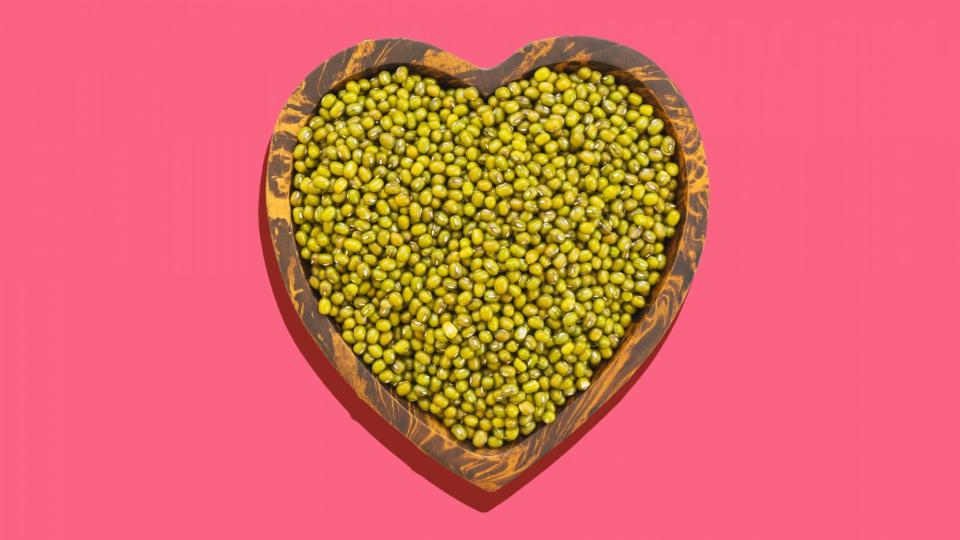Never Tried Mung Beans? This Little Legume Is Packed With Protein, Potassium, and More Key Nutrients
If you're interested in expanding your bean scene, look no further than the mung bean, also referred to as the green gram, maash, or moong (among other names). A plant species in the legume family, and primarily cultivated in Asia and India, mung beans are typically prepared by boiling until soft, and known for packing major health benefits into their small, soft skins.
"Mung beans can be enjoyed in salads, soups, and stir frys," says Beth Warren, RD, CDN, a registered dietitian and founder of Beth Warren Nutrition. Scoop up a pack of organic mung beans and start incorporating them into your meals today for a healthy boost of potassium, protein, antioxidants, and more. From fiber to folate, read on as Warren helps break down some of the key healthy nutrients found in mung beans.

Getty Images
RELATED: The Health Benefits of Pulses (Chickpeas, Lentils, Dry Peas, Beans)
Mung Bean Nutritional Benefits
They're packed with potassium.
One cup of mung beans provides roughly 537 milligrams of potassium. That's 15 percent of the daily recommended amount, which can help with important bodily functions such as water regulation, nerve signals, and muscle contraction, as well as decrease the risk of high blood pressure and other health conditions.
RELATED: 7 Foods Higher in Potassium Than Bananas
They're a good source of protein and fiber.
"One cup of mung beans also contains an estimated 14 grams of protein and 15 grams of fiber," says Warren. Protein helps to produce antibodies, enzymes, blood, hormones, connective tissue, and more, while fiber supports a happy gut for a filling snack that promotes digestion.
They're rich in minerals like magnesium, iron, and phosphorus.
If you could use a nutrient boost, mung beans have your back, boasting a range of minerals such as magnesium (helpful in maintaining healthy blood pressure and sugar levels), iron (enables red blood cells to transfer oxygen to the body's tissues), and phosphorus (strengthens bones and teeth).
They promote healthy cell growth.
Additionally, Warren notes that mung beans "are very high in folate, providing 80 percent of the recommended dietary intake. This water-soluble B vitamin supports the synthesis of nucleic acids (DNA and RNA), along with the metabolism of amino acids.
They work as an antioxidant.
Lastly, Warren points out that "the mung bean's high antioxidant content may help to prevent cancer," with studies indicating it as a potential agent against cervical and liver cancers.
RELATED: The Top 7 Antioxidant-Rich Foods You Should Stock Up On

